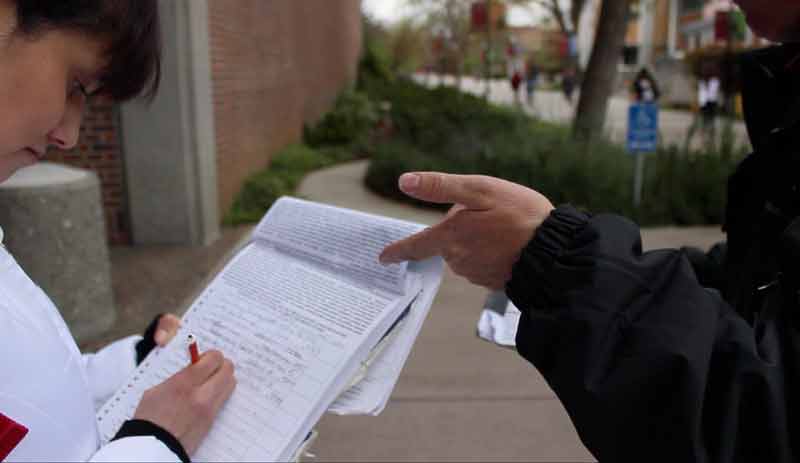You see them in front of the library or in the commons behind large tables with stacks of white paper. They stop you as you pass by, asking for a signature and personal information.
Sometimes it’s “divide California into six states,” or “more bond sales for high-speed rail.” The causes change but one thing remains the same: the money.
In 1911, in response to a perception that the California legislature had become a parlour peddling favors to the rich and well-connected, a reform that allowed citizens to enact legislation directly through the California Initiative Process was instituted.
By a process of signed petition, citizens can qualify a state initiative for a direct vote of the people in the general elections if the petition receives 504,760 signatures, according to the California Secretary of State’s website.
What started out as an attempt to remove big money from government has now come full circle and a new industry has developed.
A petition has a 100 percent chance of qualifying for the ballot if it’s backed by enough funds to hire petition circulators to collect signatures, according to the National Conference of State Legislation.
Petition campaigns that rely on volunteers to collect signatures rarely make it to the ballot.
It costs an average of $1,953,455 to run a petition campaign and get an initiative on the ballot, according to Ballotpedia.org. In 2013, proponents of Proposition 30 spent a high of $8,773,490 to raise the California sales tax.
Clients come to me once they have to have a firm handle of where the money would come from to pay for petitioners, said Michael Arno, founder of one of the two largest petition gathering companies in the United States.
“And it’s not just me,” he said. “They have to have at least an idea of where the money would come from to run a campaign once it’s on the ballot. I’m not the most expensive part of it.”
When asked why unpaid petitions don’t make it to the ballot, Arno responded, It’s because they didn’t have the money or because they didn’t have a good enough idea in the first place.”
Collecting signatures is tough work, so people more or less need to be paid, he said
And it pays well, said Dale Parks, who has gathered signatures at Chico State and UC Davis for the past 12 years. He can make between $250 to $300 a day at $1 to $3 a signature.
During a 2011 protest at UC Davis, Parks witnessed the steps gatherers will take to get people to sign firsthand.
“In the shadows, ten feet away,” he said. “I was getting protesters to sign a petition that would go against what they were protesting. I didn’t lie, I just said what the petition was about, but I didn’t go any further by saying, ‘By signing this petition, it will ultimately raise your tuition rates.’”
Other petitioners weren’t so honest, Parks said.
“Unfortunately, I saw these two other petition gatherers, two women from Florida who were intentionally lying, saying that by signing this petition, it will lower tuition rates,” he said. “Sure enough, the petition made the ballot, became a law and the rates rose.”

Emily Bertolino can be reached at [email protected] or @EmilyBertolino on Twitter.








